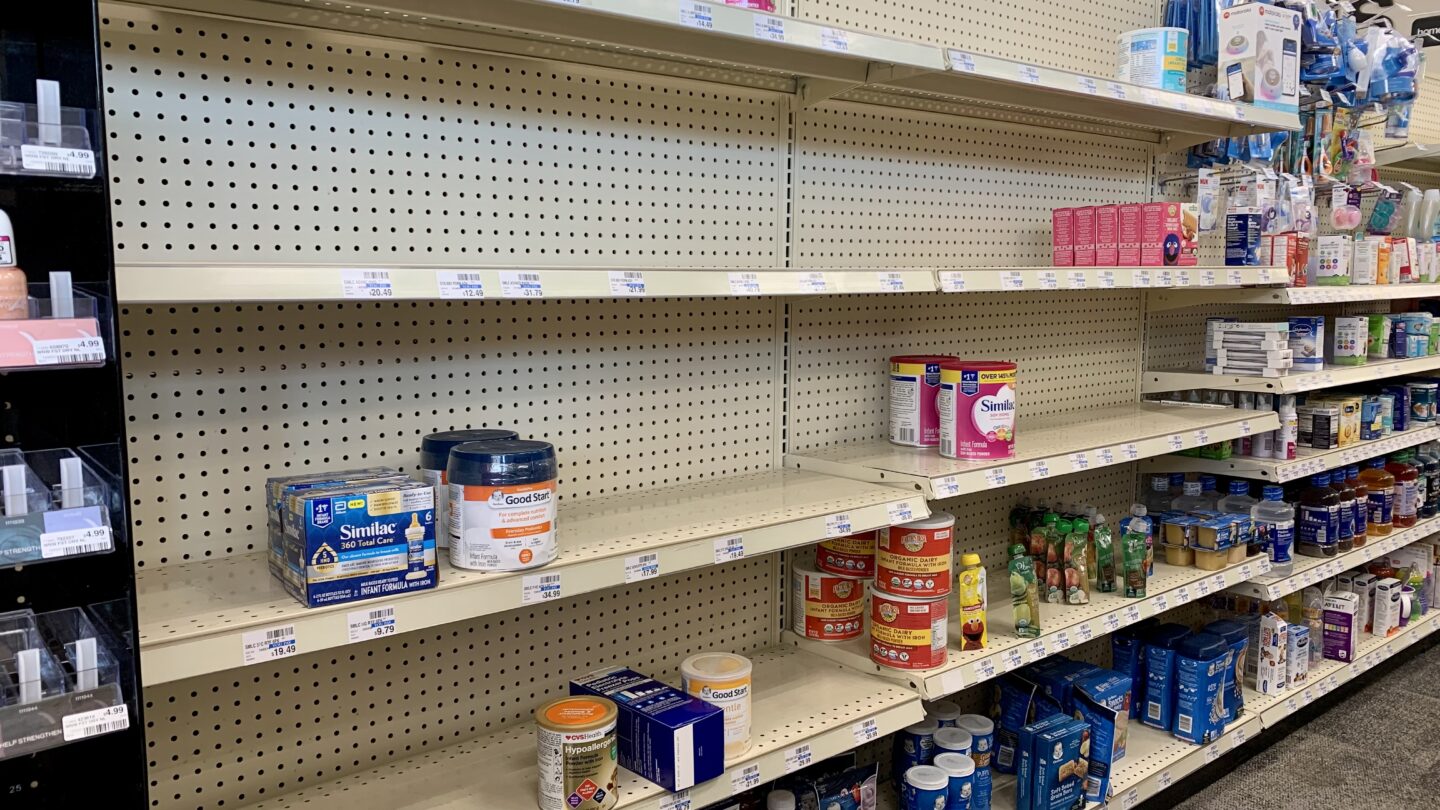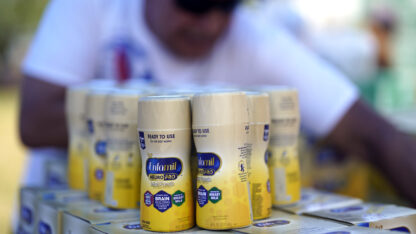The statewide nonprofit organization Helping Mamas — which provides struggling parents with supplies for babies and children such as diapers, cribs, car seats and baby formula — urges anyone with extra unopened, unexpired baby formula to consider donating it.
Many retail chains in Georgia and around the United States are limiting customers’ baby formula purchases amid ongoing nationwide shortages and supply chain disruptions.
Jamie Lackey, founder of the Norcross-based group Helping Mamas, says the supply crunch hits low-income families the hardest. Many lack transportation to drive from store to store seeking baby formula.
“Families are anxious, they’re scared,” she says. “The social workers and the nonprofits that we work with are anxious and scared. They’re calling quite a bit, trying to get access to formula. And so we’re just trying to get it out into the community as fast as we can get it.”
Lackey’s group typically has a stockpile more than three times as big as its current supply, she says. Helping Mamas is working around the clock to bring more baby formula into its warehouse as quickly as possible so it can be distributed to communities across Georgia.
A spokesperson for the Georgia Department of Public Health says it’s communicating with federal agencies and the baby formula supplier for the state’s WIC program that assists low-income women, infants, and children, Mead Johnson, “to ensure stock is monitored and situations are addressed as we, and they, are alerted to them.”
DPH recommends that parents talk with their pediatrician if they have questions about nutrition for their child or safe alternatives to baby formula.
“Georgia WIC has experienced intermittent issues with shortages statewide, but the issues have not been concentrated in any particular area of the state. As WIC is made aware of clients who are not able to obtain a specific formula through the local WIC-approved grocers, we work with the local WIC agency, local grocers/retailers, and the formula manufacturers to find a solution,” DPH said in a written statement to WABE.
Mead Johnson is one of a handful of baby formula makers that includes Abbott Nutrition, which earlier this year voluntarily recalled some of its formulas after four infants were hospitalized with bacterial infections.
NPR News reports that data from Datasembly finds the average out-of-stock rate for baby formula in the U.S. was 43 percent earlier this month.
Lackey says for families whose babies who can’t breastfeed or have nutritional sensitivities, the formula shortage is a crisis.
“It’s one of those things where there’s no good backup. This is nutrition for babies. This is how they grow. This is how they stay healthy,” she says. “And as a mom, it’s heartbreaking not to be able to feed your child.”
Foodbanks around the state are accepting donations of unopened, unexpired baby formula.
For information on how to help, go to the Helping Mamas website, or call 770-985-8010.









